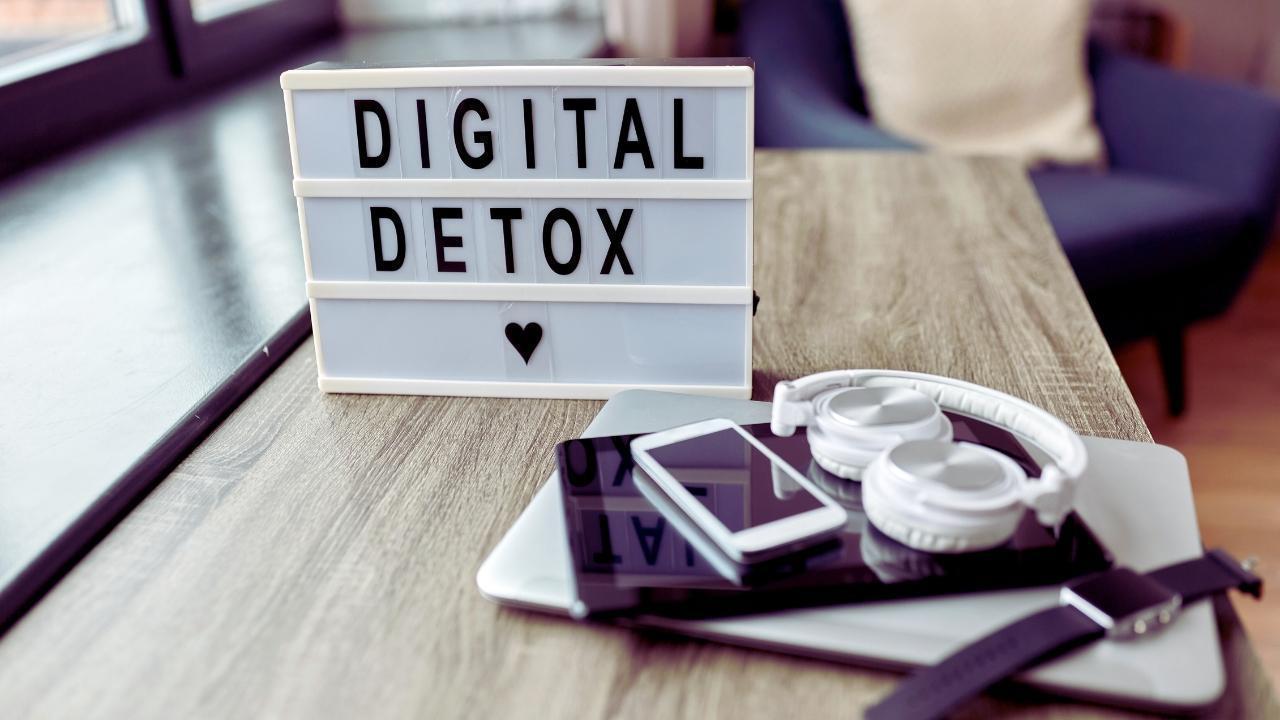You have not yet added any article to your bookmarks!

Join 10k+ people to get notified about new posts, news and tips.
Do not worry we don't spam!

Post by : Anis Farhan
Walk down any street today, and you’ll see it: people clutching their screens, swiping with rehearsed regularity, eyes glowing from phone light even in twilight. Nearly half the world now uses a smartphone—always on, always within arm's reach. The idea of living without one seems almost unimaginable. Yet, something is shifting. Digital overwhelm, diminished attention spans, and rising anxiety linked to relentless connectivity are making many question whether constant access is worth it.
What started as fringe self-care has become a conscious movement. Digital detoxing—completely unplugging for designated times—promises mental rest, deeper presence, and freedom from distraction. Spa retreats offer phone-free stays. Schools run "Unplugged Thursdays." Workplaces experiment with email-free weekends. From groups of friends giggling over midnight sky rather than notifications, to programs expanding boundaries of focus and calm—detoxing has reshaped from novelty to necessity.
But detoxing is not easy. Phones are central to modern life—for work, socializing, learning, or even basic logistics. Removing that link can feel destabilizing: anxiety rises, boredom creeps in, and the urge to check notifications becomes reflex. Social validation via instant messages or pull-to-refresh dopamine spikes may reinforce attachment. In short, detoxing challenges both habits and identity—anxiety often hints that it's not just a device being left behind, but a piece of self.
Studies show that even short breaks can yield benefits. Participants in detox programs report better sleep, reduced anxiety, and elevated focus. Without constant pings, the brain’s “task-switching” slows, allowing deeper engagement with people or ideas. Conversations feel richer; cravings for checking things fade. Reflection—long abandoned in our digital age—returns. Yet, some uncover how tethered life really is: none mention “missing the internet”—they notice the invisibility of phone dependency.
Digital detoxing has gone mainstream. Influencers sharing phone-free weekend routines gather thousands of likes. Wellness magazines feature unplug retreats in rural hill stations or coastal forests. Even tech luminaries quietly unplug and report reawakened awareness. These personal stories create social proof—and make detoxing feel less extreme and more trend-adjacent.
There’s no single approach. Some choose weekend escapes—no screens, just books and hikes. Others step up with 24-hour “digital sabbaths.” Longer retreats span a week or more at resorts with strict no-device policies or phone “burn boxes.” Meanwhile, minimalist detoxes require wearing trackers that shuffle plans but rescue just enough contact. Gradual cooldowns—reducing phone use each day—help ease the shock. The variety offers flexibility for different needs and lifestyles.
Digital detoxes often yield unexpected results. One parent reported rediscovering their sleep cycle; a student noticed better exam focus; strangers start conversations because no one was staring at screens. Yet, pitfalls appear: families accustomed to co-watching Stranger Things felt lost without streaming. Some users experienced FOMO (“fear of missing out”), anxious at missing notifications. For professionals, “always available” messages via passive platforms triggered cognitive dissonance: the vacation felt undone by invisible calls. This tension reveals how deeply scheduling access altered our relationship to time.
Just as showers clean bodily grime, detoxing cleans mental clutter. It’s not an escape, but a reset. We wash habits, rinse expectations, and emerge clearer. For advocates, detoxes are repeats—not extremes. Sunday afternoon tech breaks, device-free meals, or phone EMERGENCY-only modes become ritualistic modern hygiene. Over time, these breaks expand tolerance for boredom, ignite creativity, or enhance presence in ways our distracted culture occludes.
Detox trends vary globally. In highly connected urban centers—Tokyo, Seoul, Singapore—digital withdrawal can feel radical. Conversely, in vast rural or lightly connected regions of Asia, unplugged weekends evoke nostalgia foreseen, not rebellious discomfort. Western office cultures are experimenting with “meeting-free” or “no email after 6 pm” policies. Yet underlying all these lies the same battle: reclaiming time and attention from invisible digital chains.
Full-time, permanent detox isn’t practical for most—jobs, social coordination, emergencies require connectivity. But sustained, conscious digital restraint is more possible. Using task-based phone habits (only using when needed), enabling focus modes per category (work, leisure, family), scheduling tech-free social events—it’s less about giving up device culture, and more about organizing it on one’s own terms.
Digital detoxes reveal that connection, when intentional, can enrich rather than drain. The detox isn't about rejecting technology—but choosing how and when it shapes our lives. It is the art of presence, rediscovering attention, and anchoring identity beyond instant validation.
This article is based on current behavioral research and cultural trends. It serves as general insight, not medical or psychological advice. Individual experiences with digital detoxing may vary.










Two Telangana Women Die in California Road Accident, Families Seek Help
Two Telangana women pursuing Master's in the US died in a tragic California crash. Families urge gov

Ranveer Singh’s Dhurandhar Roars Past ₹1100 Cr Worldwide
Ranveer Singh’s Dhurandhar stays unstoppable in week four, crossing ₹1100 crore globally and overtak

Asian Stocks Surge as Dollar Dips, Silver Hits $80 Amid Rate Cut Hopes
Asian markets rally to six-week highs while silver breaks $80, driven by Federal Reserve rate cut ex

Balendra Shah Joins Rastriya Swatantra Party Ahead of Nepal Polls
Kathmandu Mayor Balendra Shah allies with Rastriya Swatantra Party, led by Rabi Lamichhane, to chall

Australia launches review of law enforcement after Bondi shooting
Australia begins an independent review of law enforcement actions and laws after the Bondi mass shoo

Akshaye Khanna exits Drishyam 3; Jaideep Ahlawat steps in fast
Producer confirms Jaideep Ahlawat replaces Akshaye Khanna in Drishyam 3 after actor’s sudden exit ov